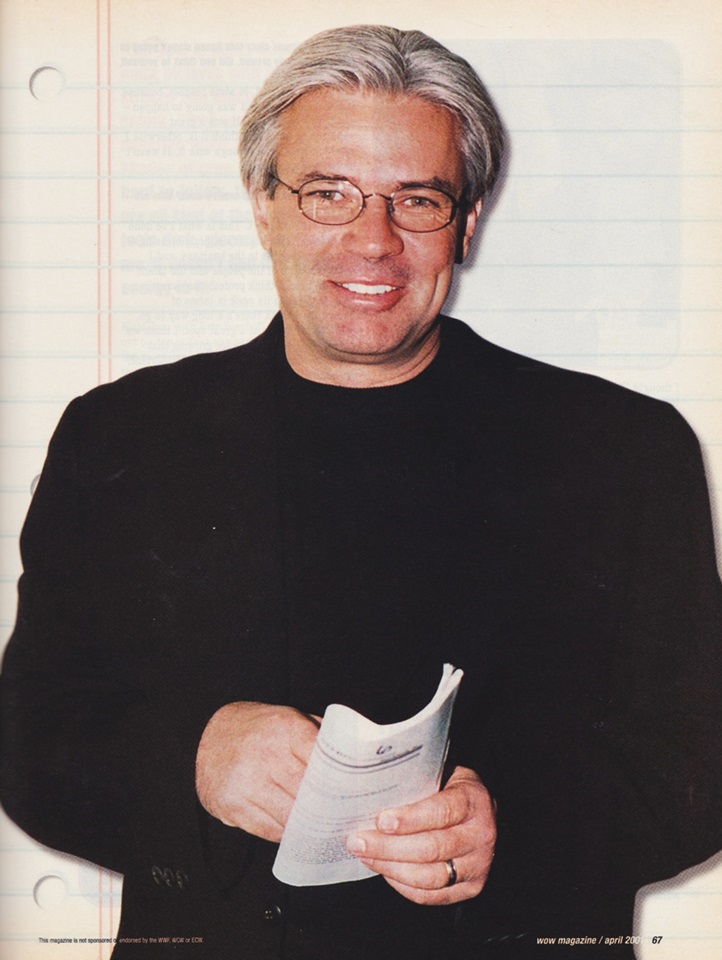
Bischoff’s Back: Interview by Bill Apter and Tim Towe – World of Wrestling Magazine [April 2001]
“The professional wrestling landscape has changed. Fusient Media Ventures announced Jan. 11 that it had reached an agreement to purchase World Championship Wrestling from Turner Broadcasting System Inc. Under the agreement, Fusient would take control of WCW with former WCW President Eric Bischoff in charge of the federation. TBS agreed to keep a minority interest in WCW along with programming rights. Fusient co-founder Brian Bedol became the chief executive officer of the new WCW Inc.
‘We’re going to re-establish WCW as the champion of professional wrestling entertainment,’ Bedol said. ‘There is huge untapped potential for the franchise, and with Eric Bischoff on board, we will crank everything up to make the WCW franchise bigger, better, stronger and more entertaining.’
Bischoff, Bedol and Bradley Siegel, TBS president of general entertainment networks, would not disclose the price of the sale but Wit Soundview media analyst Jordan Rohan told Variety that WCW’s value was between $10 million and $15 million.
Bischoff said he is focused on turning WCW’s fortunes around.
‘Wrestling fans can rest assured that we will give WCW the adrenaline shot it needs to once again become the most exciting brand of wrestling in the world,’ he said.
Bedol said WCW fans would not notice immediate changes, nothing that ‘some changes will be evolutionary, some changes will be revolutionary.’ He also hinted at a relaunch of WCW programming and storylines, probably after the deal is finalized in February or March. Hulk Hogan may have a role in the company, Bischoff said, but that arrangement is not finalized.
WOW Editor-in-Chief Bill After and Editorial Director Tim Towe interviewed Bischoff shortly after the sale was announced. Read on for the exclusive interview with the man in charge of the new WCW.”
“Q. WCW has been knocked down so many times. Why do you want to keep coming back to try to save the federation?
A. When I first started talking to Brad Siegel last March (2000), I made it clear to him that I thought WCW was going to be for sale. Of course, he looked at me with a kind of confused look on his face and was rather shocked. I let him know that I was going to make an attempt to buy the company. I wanted to be very honest with him about it. I didn’t really come back until around the middle of April. I tried to make it work with that new relationship that I had with Turner and WCW. I came in, for lack of a better way of saying it, on a part-time basis. I didn’t have the kind of authority or control over the product, but I knew the company was going to end up being for sale. After I had been there for six or eight weeks, I felt very uncomfortable with the direction of the company creatively and somewhat frustrated at my lack of ability to change it because of my diminished role in the company. I told Brad it would be better for me to step away. I didn’t believe that Vince Russo was going to be successful with some of the things that he wanted to do.
Q. But wasn’t the whole vision that Russo is one of the guys who allegedly made the World Wrestling Federation so successful?
A. It’s pretty obvious that probably wasn’t the case if you look at what Russo did with this company during the period of time after I left. He had four, five or six months to work his magic, and I don’t think anyone saw anything magical going on. The company lost a lot of ground during that period. I told Brad that it would be better for WCW if I stepped away and let Russo do whatever he thought he could do… without my interference. Either Russo would prove that his philosophy was going to work without me, or he was going to fail. I felt very uncomfortable standing next to someone and supporting a strategy that in my heart I knew was wrong. So I told Brad, ‘You’re going to need someone to go back to if he fails. You’ll need someone with some level of credibility in case Russo’s strategy doesn’t work.’ All three of us agreed.
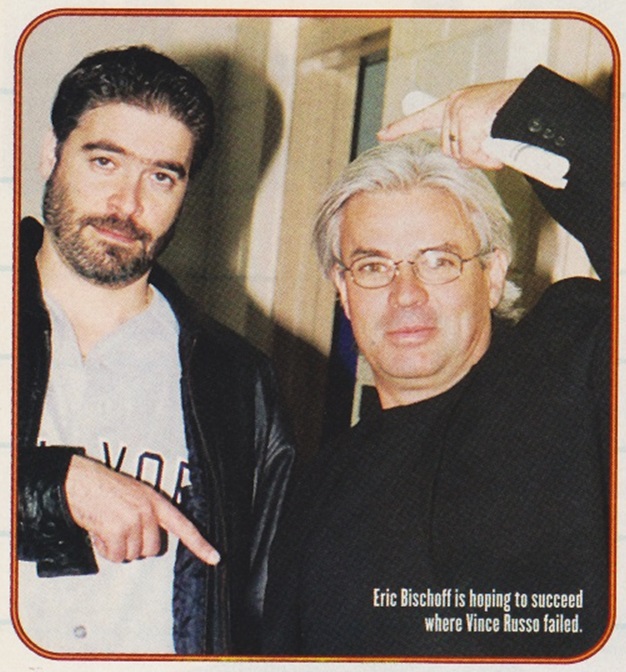 Q. After it became clear that Russo wasn’t going to turn the company around, did you think to yourself, ‘I told you so?’
Q. After it became clear that Russo wasn’t going to turn the company around, did you think to yourself, ‘I told you so?’
A. No. I was excited, in some respect, because it was something I felt was going to happen – and it was happening. It was a great opportunity, and I still think it is, otherwise I wouldn’t have gone through with it. It wasn’t an ‘I told you so.’
Q. What makes you keep coming back? Why are you so attached?
A. I love the business. This is what I’ve done for the past 15 years. It’s either a blessing or a burden. I believe in the business, and I believe in a lot of the people and the talent who are here. I think professional wrestling has yet to reach its peak in terms of popularity. I think there’s a long way to go, even though we’re at a great spot. I think we at WCW are responsible for growing that category. We made Monday nights important, we created the competition and got people talking about it, writing about it and thinking about it. Nitro started having a negative impact on ‘Monday Night Football’ ratings, and then the WWF started to grow and become such a dominant force in the industry, and I feel like we’re part of that. There’s more ground to be gained, and I can’t walk away from an opportunity like this.
Competing with the WWF
Q. Would you feel successful only if you eventually surpass the WWF in Neilsen ratings?
A. No. But this is a part of it; I would be lying if I didn’t admit to that. They’re No. 1 . They’re the incumbent. People are always going to compare the WWF with WCW or Vince McMahon with Eric Bischoff. I want to come out on top in that comparison. But that’s not the most important thing. The most important thing is to keep this business alive. We’re a great place to work, and we have great opportunities for good people. The second most important thing is to grow the business so that it can last a long time and continue to prosper. Obviously, it’s going to be profitable. That’s what I’m here for.
Q. Can you beat the WWF in the Nielsen ratings, and is there a personal vendetta between you and Vince McMahon?
A. I’ve already done it . I think I proved to a certain degree that it can be done. Unfortunately, I didn’t sustain it for as long as I would have liked to. It’s not personal at all. In order for this company to be where I want it to be, you have to surpass the high mark [the WWF has set]. But it’s not personal in any way. I don’t know the man so it can’t be.
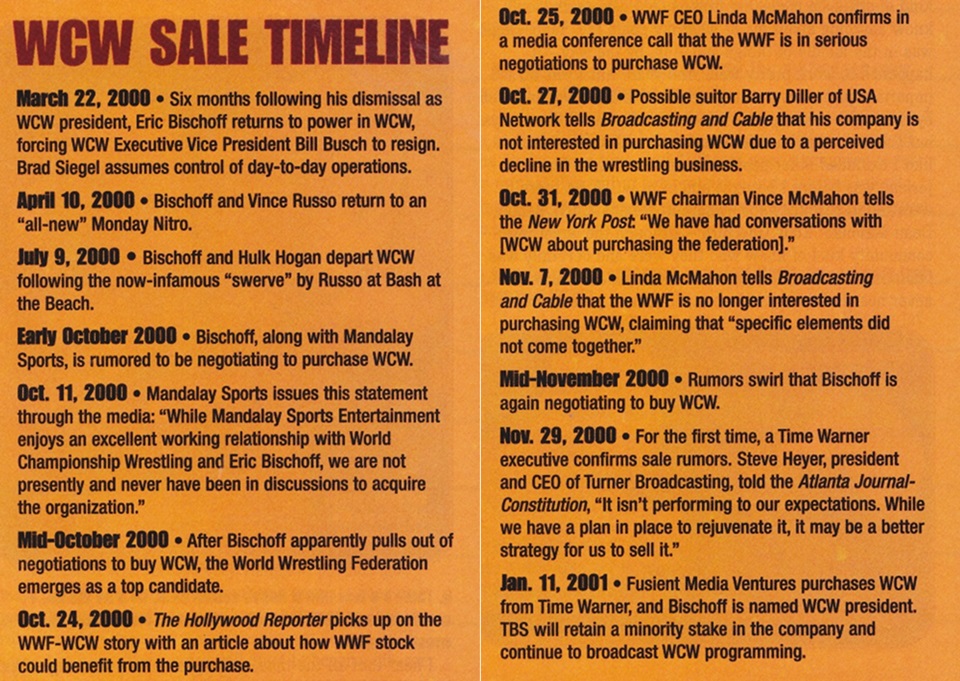 Q. Are your new ideas for the federation coming from another part of pop-culture? Or are you thinking, ‘Let’s go back to a good wrestling show and people will come back and watch it?’
Q. Are your new ideas for the federation coming from another part of pop-culture? Or are you thinking, ‘Let’s go back to a good wrestling show and people will come back and watch it?’
A. It’s both. The audience’s appetite changes, and its perception of the product changes. You have to change and adapt to the audience or you just die and go away. I want to find some revolutionary ways to present the product. I want to do some things that have never been done before. But I don’t want to do that at the expense of formulas that we know work. It’s a pretty simple formula, but complex in the sense that you have to find new and different ways of presenting it to keep it fresh and interesting. I don’t want anyone to think that we are going to go back to just a wrestling show. Yeah, there’s going to be great action, and I think the wrestling is going to improve.
Q. Critics have said WCW has started to resemble a lower-quality version of the WWF. How do you avoid that perception?
A. I think that’s being kind. I think it started to resemble backyard wrestling. I don’t think there’s any comparison to what goes on in the WWF. They got to experiment, and it didn’t work. Everybody watches wrestling for different reasons. Not every wrestling fan thinks the same about the product. But one thing you can say fairly safely is that people watch wrestling to see people wrestle, not to see guys who are actually pretty bad actors and comedians try to be funny. That’s not what we do best, and I think there has been too much time spent backstage trying to be funny and entertaining and not enough time spent trying to tell a great story that ends up in a great match in the middle of the ring. That’ll be the difference. As I told the wrestlers today, the goal is going to be to paint pictures with broader strokes and much brighter colors. Right now I would describe WCW as various shades of gray. The stories are hard to follow; the characters are all kind of the same. It just feels dark, gloomy and foggy to me. It doesn’t feel like there’s energy in it.
Q. I heard you want to keep WCW a little cleaner than the WWF – with no vulgarities and not as much sexual innuendo. Is there a place for that type of show?
A. I don’t think the WWF has any of those things. I think it was two years ago. I think the WWF right now is like the ‘Wonderful World of Disney’ compared to what it was two years ago. They don’t have the language they used to have, they don’t have the sex, they don’t have a lot of the type of content that got them to the dance two or three years ago. They’ve toned down dramatically. In fact, they are safer in many respects than WCW is right now. I’m not worried about that. I think the playing field is much more level now that it’s ever been. If you’ve noticed what’s happened to [RAW] since it moved to TNN … it’s Viacom, it’s a much bigger company and much more conservative. [The WWF] is no longer doing a lot of the things that it did to really displace WCW as No. 1 two years ago.
Q. Extreme Championship Wrestling has financial problems. Would you consider an Invasion storyline to boost both federations?
A. No.
Q. Why?
A. With the New World Order (nWo), that concept worked because two of the key players at the beginning, Scott Hall and Kevin Nash, came in and had a personal grudge against WCW because of the way they were treated when they were here previously. That was the premise of the nWo angle. They showed up, they were pissed and they were coming back to make everybody pay. That story began to grow, and it was essentially the wrestlers against the company. That story played itself out over the course of a few years, and it worked. Then the WWF did the same thing with D-Generation X; it was the wrestlers against the company. Then it was Steve Austin against Vince McMahon. How many different ways can you tell the same story and keep it interesting? I think it’s time to get away from that premise and come up with some new things where it’s about the wrestler against the wrestler.
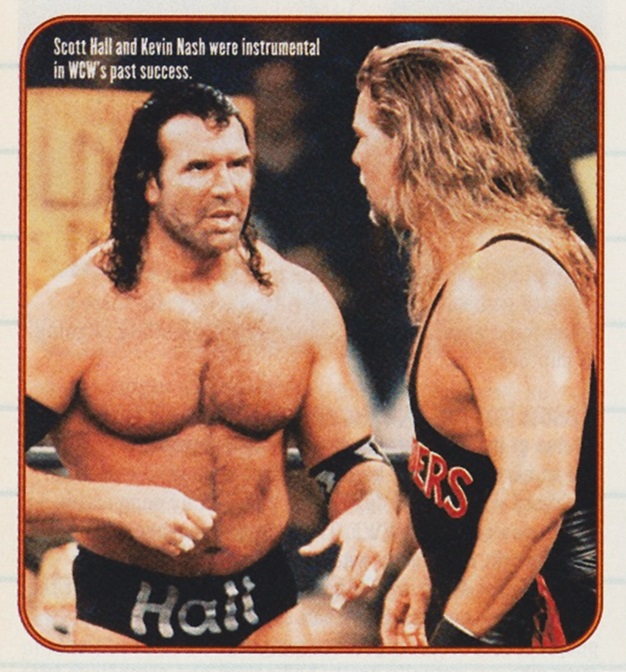 Q. How do you respond to the critics who say you would have to steal performers such as The Rock, Steve Austin or Triple H to get fans to be interest? That’s what happened when Nash and Hall jumped to WCW.
Q. How do you respond to the critics who say you would have to steal performers such as The Rock, Steve Austin or Triple H to get fans to be interest? That’s what happened when Nash and Hall jumped to WCW.
A. We didn’t steal anybody. They jumped over after their contracts were done. Those opportunities are no longer there. McMahon woke up one day, and he heard we were going to launch a show called Nitro. He tuned in and, at one point during that show, Lex Luger showed up and was a part of Nitro. If I’m McMahon, I’m thinking, ‘Hey, wait a minute. He works for me, why is he on their show? What do you mean he doesn’t work for me? What do you mean his contract is up? Who let that happen?’ If you add that to the Hall and Nash situation, McMahon learned his lesson. You don’t let key pieces of talent become available without knowing about it and managing it. I’m sure that The Rock, Austin and everyone else at the WWF is tied up for a long period of time.
Q. If there were no contracts, who would you want to sign?
A. Obviously, it would be The Rock. I really respect what he’s done with his career, and I respect the way he presents himself to the public. Beyond that, I’m not sure. Not that I wouldn’t want other people, but I’m not sure there is any other person who would be that critical to our success.
Q. Do you regret any of the losses of talent you’ve endured, such as Austin and Triple H?
A. Not Triple H. He’s done a great job, and he’s got an important role in the WWF, but I don’t look at that as WCW’s loss. I just don’t think Austin would have gotten over here. The opportunity wouldn’t have been here for Austin, because there were a lot of other people here who were at a much higher level. He was in the right spot at the right time in the WWF. The things he did – flip everybody off and chug beer – worked for him and the WWF on USA. They wouldn’t have worked in WCW. It made him real, controversial and kind of every man’s hero.
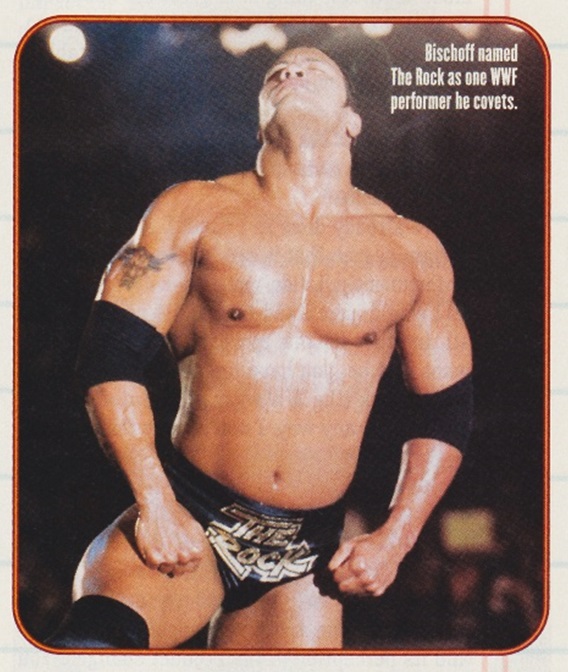 Q. If McMahon called you tomorrow, and said, ‘Let’s get together. Maybe we can do a Super Bowl of wrestling. It’s good business for everyone.’ What would you say?
Q. If McMahon called you tomorrow, and said, ‘Let’s get together. Maybe we can do a Super Bowl of wrestling. It’s good business for everyone.’ What would you say?
A. After they woke me up I’d say it’s an interesting idea, but realistically it’s not going to happen. It’s like asking how I would react to winning $600 million in the lottery. Obviously, I’d be happy.
Q. But strange things happen in this business. People who would never work together come together if it’s good for business.
A. I just don’t see it. Vince is a smart man who’s operating a business that is very successful. I would be interested in having the conversation, but realistically it’s just not going to happen.
The Hogan Issue
A. There’s the perception that WCW is going to be the ‘good ol’ boys’ network again. You’re tight with Diamond Dallas Page, Hulk Hogan, Nash and Randy Savage. Is there a place for the older wrestlers in the new WCW?
A. Sure. I think a lot of that is blown out of proportion. I’m very good friends with Hogan. I talk to him almost daily and have for the past couple of years. I have a tremendous amount of respect for him, and I think he’s a valuable asset. He’s either going to be a valuable asset here, a valuable asset to the WWF or he’s going to be a valuable asset doing his own thing. Hogan and I have been in on the same meetings with other people who are interested in getting into the wrestling business. So I know what his opportunities are because I almost became part of it. He has some real opportunities. I really don’t want to have to compete against him. Hogan is a very smart man. He knows what his strengths and weaknesses are. His ego isn’t nearly as big as people blow it out of proportion to be. I hope he’s here. Nash is a good friend of mine. I don’t talk to him every day. Even that relationship to a degree has been blown out of proportion. He has a lot of talent, he’s a smart guy and he has a lot to offer. Properly motivated, he’s one of the most important people in the business.
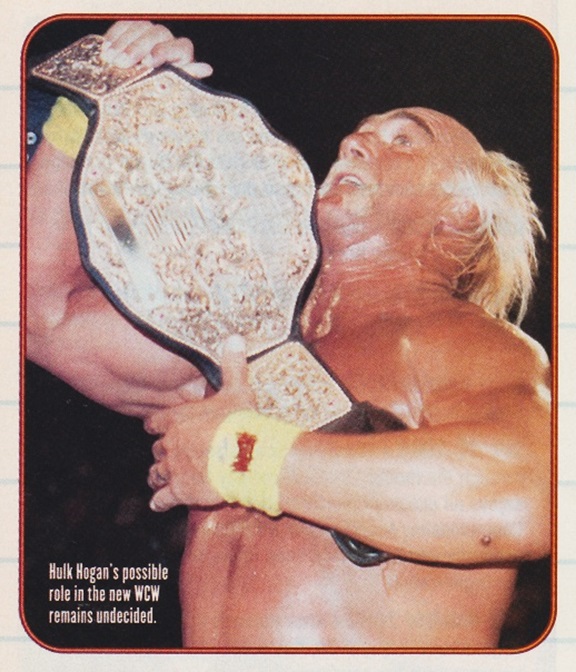 Q. There’s a fear that if Hogan comes back, he’ll be the No. 1 contender, and WCW fans will be watching the legends of wrestling again.
Q. There’s a fear that if Hogan comes back, he’ll be the No. 1 contender, and WCW fans will be watching the legends of wrestling again.
A. I hear that all the time, and it just makes me laugh. That kind of criticism is coming from people who really don’t know anything about me or what my goals are. Yeah, Hogan was in the middle of things and – oh, by the way – it happened to work pretty well. And yeah, Nash was an important part of everything we did with the nWo, and – oh, by the way – it was pretty successful. I’ve used these guys, but I’ve had a fair amount of success with them. It’s not like I excluded other people. No one knew who Chris Jericho was before I brought him in to WCW. He literally wrestling in obscurity somewhere in Mexico. Chris Benoit, Dean Malenko, Eddy Guerrero – although the wrestling community kind of knew who they were and certainly was familiar with them, the national television audiences had never heard of them until we made them a prominent part of our show. They were a very successful part of Nitro. If you look at The Jung Dragons, guess who hired them? I sought them out. When you see Shane Helms, guess where he came from? Russo didn’t bring him in here; I did. It’s not that I didn’t recognize the need to bring in fresh talent. I recognized it several years ago, and I acted on it. There’s a place for established names, but not at the expense of new talent.
Q. Your wife, Loree, must be thinking, ‘Oh my God, he’s getting the urge to go back and do this again.’ How will this return affect your personal life?
A. That’s funny, we were just talking about that. When I first left the company in 1999, seven years prior to that I was on the road five days a week. When I was home, I’d say hello to everyone, give everyone a hug, eat a meal and then I’d crash. My wife joked about it the other day. She was kind of single parent in many regards. Then all of a sudden I was under foot all the time, and she had to really adjust her lifestyle. All of a sudden there was this guy on her couch all day. We adjusted, we had a great time and we did a lot of things we hadn’t had the opportunity to do, like travel. We have a home out West, and I love to fly fish. We took a couple trips in my plane and did some fishing together. It was great. The other day she woke up realizing, ‘Oh my God, he’s going away again.’ We’ll adjust to that, too.
Q. How will your role change as president? Will you be more behind the scenes?
A. I don’t believe in the wrestler vs. the company storyline. I don’t think there is a role for me there anymore. I’m not a wrestler; I don’t want to be a wrestler. I’m too old and fat to become one. I’m going to do something else. I’m not saying that I”m not going to be on television, and perhaps initially I’ll make a statement and let everyone know that something has changed. I might. It will probably be only a one-time situatiopn.
Q. You were quite visible with the nWo and when you came back in 2000. Was there ever a point when you realized it was not working anymore?
A. It was when Russo was still here. He had written the show, and he and I talked about it a little bit during the week. I said, ‘I’m not doing that.’ It was too much about Eric Bischoff and Vince Russo. I’m never going to wrestle. I’m never going to have a match that anyone is going to want to spend money to see or spend five minutes watching on television. I said,, ‘I just don’t want to do it anymore.’ It was probably something in June [2000]. I looked at the sheet, saw my name on five different segments and said I can’t do it.
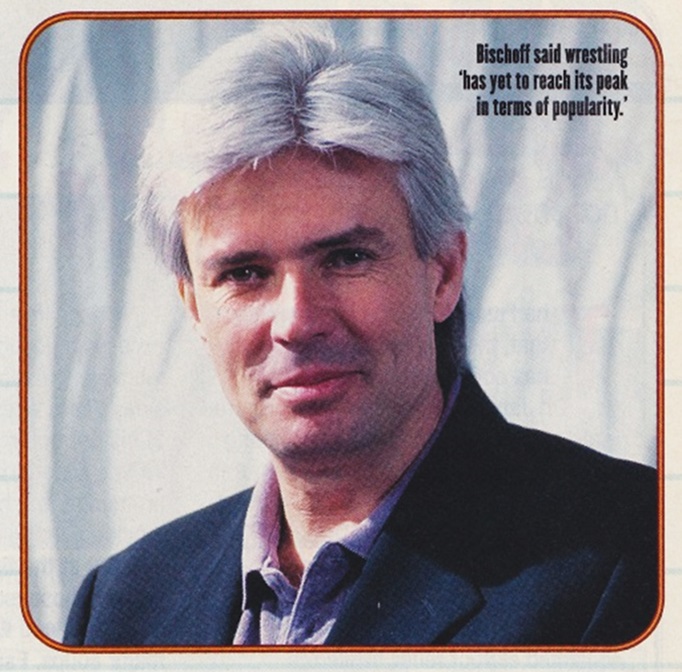 The Future of WCW
The Future of WCW
Q. This interview will appear in the WOW issue on newsstands in the beginning of March. Where would you like WCW to be at that time?
A. Even that’s too soon [to say]. The really big changes are going to take place in the next four to six months. Even something as simple as changing the graphics on the show takes a long time. I think we’re going to see new talent relatively quickly. I think people are going to see the commitment that I’m going to make it finding, developing and promoting new stars. It’s a pretty innovative approach. I think it’s going to work. It may not, but it will be become very visible to people right away. They’ll see more of an emphasis on what goes on inside the ring, I think they will definitely notice that the cruiserweight division is a more important part of WCW than it has been. The stories will start to become clearer and easier to understand. I think surprises are such an important part of what we do.
Q. Are you going to start from scratch? The last time you came back, all the titles were up for grabs.
A. [We’ll start] in a much different way. Russo and I wanted to do that differently, but it would have involved going off the air for some time, and TNT just wasn’t prepared to let us do that. We had to compromise a little bit, but I don’t want to give you the impression that all the titles are going to be up for grabs.
Q. How did you get connected to Fusient Media, the company that purchased WCW?
A. I found the company. I’m partners with Jason Hervey [of TV’s ‘The Wonder Years’] on a couple projects. Jason knew what I was going to do, and I had talked to a couple other people about buying WCW. Jason called me one day and mentioned that he had a conversation with one of the partners at Fusient, and that I should give him a call. I was introduced to Brian Bedol, our CEO and my partner. I talked to him quite a bit about it, and then we started moving forward.
Q. Did you ever say to him, ‘WCW is projected to lost $80 million, who would you want to buy the company?’
A. No. He’s a smart guy; he knew. We talked right off the bat why things were going wrong. We knew what needed to be done and how to turn it around.”
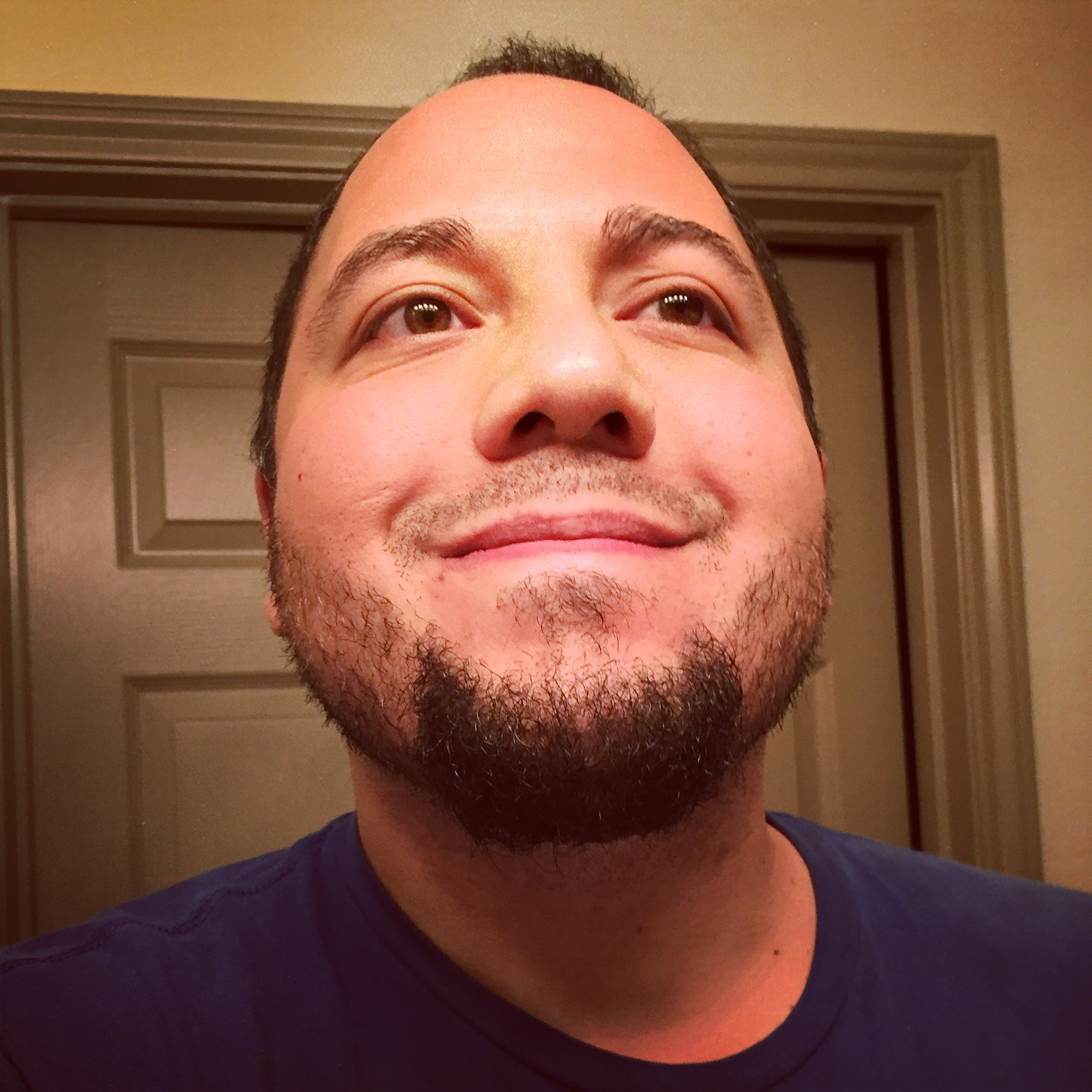
40-year-old World Championship Wrestling fanatic/collector/hoarder. Safety officer by day, scanner of wrestling magazine by night.
He’s got posters on the wall, his favorite rock group’s KISS.
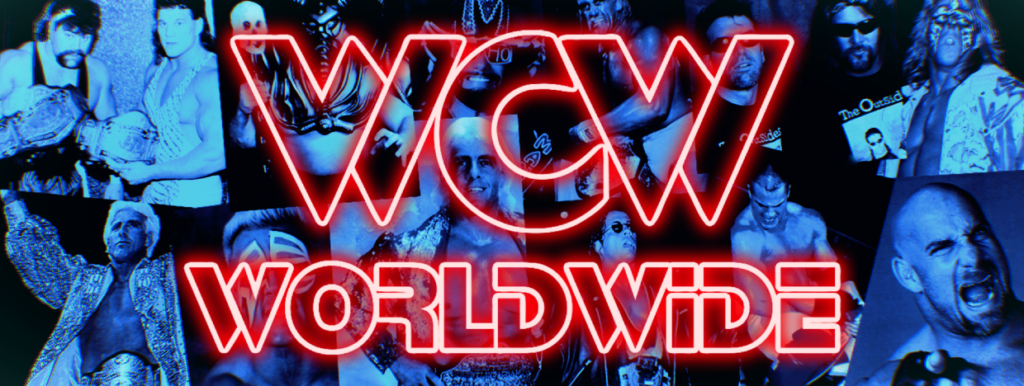
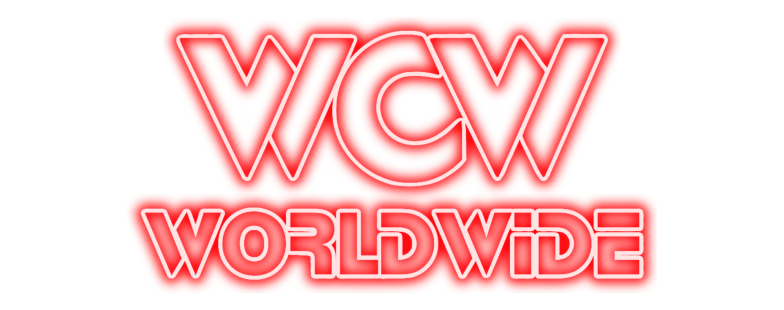
![WCW eBay Find of the Day: JCP + NWA Danger Zone Calendar [1988]](https://wcwworldwide.com/wp-content/uploads/2023/08/dangerzone-banner-218x150.jpg)
![WCW eBay Find of the Day: NWA/WCW ROOS Shoes Catalog [1990]](https://wcwworldwide.com/wp-content/uploads/2023/01/Roos-wcw-banner-02-218x150.jpg)
![Full Magazine Scans: WCW Wrestling Wrap-Up [March 1990]](https://wcwworldwide.com/wp-content/uploads/2020/09/LexLugerBanner-218x150.png)
![Full Magazine Scans: NWA Wrestling Wrap-Up [May 1989]](https://wcwworldwide.com/wp-content/uploads/2020/07/eddie-missy-rick-banner-218x150.png)
![Full Magazine Scans: NWA Wrestling Wrap-Up [February 1990]](https://wcwworldwide.com/wp-content/uploads/2020/04/ZManBanner-218x150.png)
![Full Magazine Scans: WCW Magazine (Germany) [November 1994]](https://wcwworldwide.com/wp-content/uploads/2021/05/jeanpaul-banner-218x150.png)
![Full Magazine Scans: WCW Magazine [February 1994]](https://wcwworldwide.com/wp-content/uploads/2021/05/maxxpayne-banner-218x150.png)
![Full Magazine Scans: NJPW Magazine Special #82 [1992]](https://wcwworldwide.com/wp-content/uploads/2020/09/steinersbanner-218x150.png)
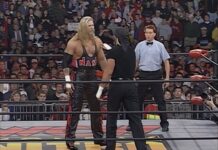
![Full Magazine Scans: WCW Magazine #55 [November 1999]](https://wcwworldwide.com/wp-content/uploads/2023/07/bret-hart-banner-218x150.jpg)
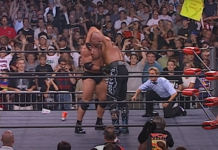
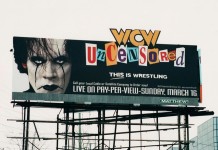
![Full Magazine Scans: WCW Magazine #51 [June 1999]](https://wcwworldwide.com/wp-content/uploads/2023/02/Macho-Banner1-218x150.jpg)
![Complete Collection of Valentine’s Day WCW/nWo Cards! [1998-2000]](https://wcwworldwide.com/wp-content/uploads/2021/02/ValentinesBanner-218x150.jpg)
![This Day in WCW History: WCW Signs Off Forever [2001]](https://wcwworldwide.com/wp-content/uploads/2019/03/wcwworldwidebanner02-218x150.png)
![Full Magazine Scans: DK Readers’ WCW Fit for the Title [2001]](https://wcwworldwide.com/wp-content/uploads/2018/10/Kidman-218x150.png)
![Full Magazine Scans: WCW Magazine #58 [February 2000]](https://wcwworldwide.com/wp-content/uploads/2018/09/VampImage-218x150.png)
![Full Magazine Scans: WCW Australia Tour Program [2000]](https://wcwworldwide.com/wp-content/uploads/2018/09/WCWTourBannerLogo-218x150.png)

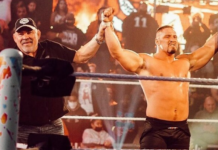
![This Day in WCW History: The Final Episode of ‘WCW Monday Nitro’ Airs [2001]](https://wcwworldwide.com/wp-content/uploads/2017/03/McMahonIsSatanCover-218x150.jpg)
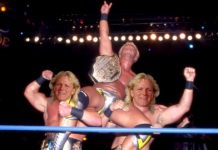
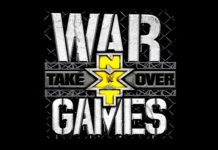

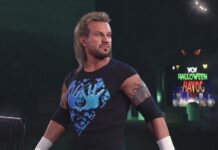
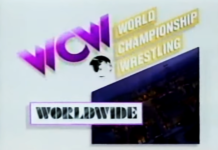
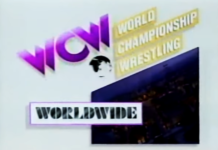
[…] https://wcwworldwide.com/2016/03/fusient-media-eric-bischoff-wow-interview/ […]
[…] the time, under the impression that Fusient, working with Eric Bischoff, were buying the company. Fusient had announced their agreement to purchase WCW a little over a month before this show and sta…. Obviously, didn’t happen. A month after this, the company was sold for next to nothing to […]